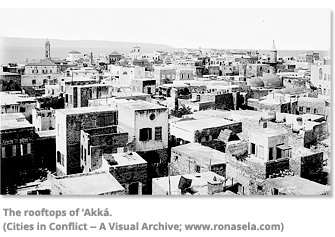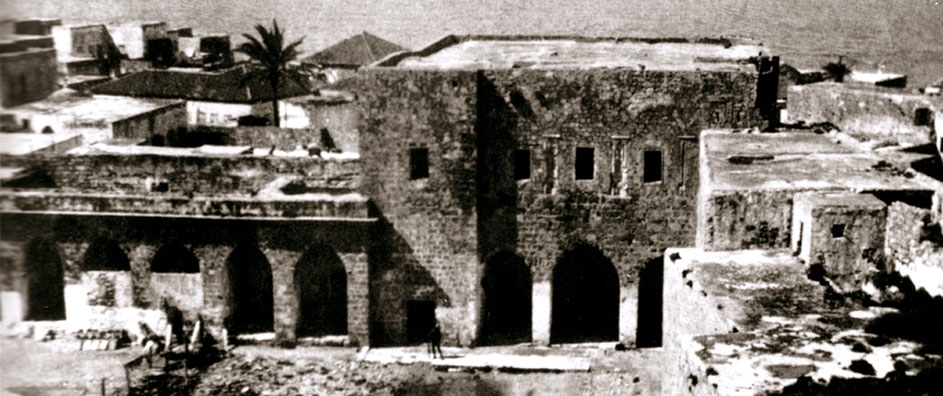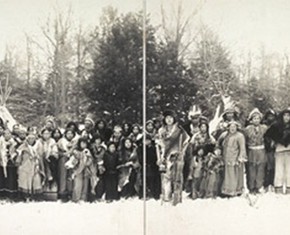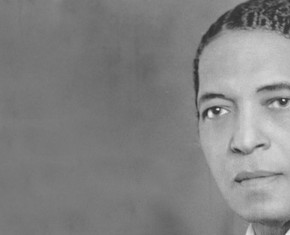The views expressed in our content reflect individual perspectives and do not represent the authoritative views of the Baha'i Faith.
Baha’u’llah’s most devout enemies could cause him no harm, he often said, but his misguided friends certainly could—and did.
In the prison at Akka, the followers of Baha’u’llah’s hostile half-brother Azal were still afoot and restless. The two who had been consigned to prison with the Baha’is were eventually joined by a third, and together they made every effort to ally themselves with individuals who could help them in their schemes to discredit Baha’u’llah. They even went to the length of adding to Baha’u’llah’s writings passages that were inflammatory and seditious. They succeeded in creating an atmosphere of suspicion and danger in which the Baha’is were forced to exist.
 Before long the patience of the Baha’is was near the breaking point. Baha’u’llah told his followers to be patient and not to retaliate under any circumstances. When one believer arrived from Beirut and announced his intent to deal with the mischief-makers, Baha’u’llah ordered him to return home immediately, which he did. Others, however, unable to restrain themselves, decided to take action. A handful of believers, seven in all, set upon the three adversaries and killed them.
Before long the patience of the Baha’is was near the breaking point. Baha’u’llah told his followers to be patient and not to retaliate under any circumstances. When one believer arrived from Beirut and announced his intent to deal with the mischief-makers, Baha’u’llah ordered him to return home immediately, which he did. Others, however, unable to restrain themselves, decided to take action. A handful of believers, seven in all, set upon the three adversaries and killed them.
As news of the murders got out, the whole city was thrown into tumult. The people of Akka, already deeply suspicious of the Baha’is, thanks in no small measure to the efforts of the murdered men, were now fired with uncontrollable animosity towards them. The situation was so bad that even the Baha’i children could not venture into the street without being chased and pelted with stones.
Baha’u’llah, who had strictly forbidden any acts of revenge against Azal’s followers, and who had always shown the utmost forbearance towards them, was plunged into deep anguish because of what his own followers had done. Their act betrayed the most fundamental principles of his faith and damaged its reputation more than anything any outside enemy could have done.
Stricken with sorrow, he later lamented:
My imprisonment doeth Me no harm, neither the tribulations I suffer, nor the things that have befallen Me at the hands of My oppressors. That which harmeth Me is the conduct of those who, though they bear My name, yet commit that which maketh My heart and My pen to lament. – Epistle to the Son of the Wolf, p. 23.
He also wrote, returning to this theme,
I sorrow not for the burden of My imprisonment. Neither do I grieve over My abasement, or the tribulation I suffer at the hands of Mine enemies. By My life! They are My glory, a glory wherewith God hath adorned His own Self. Would that ye know it! . . .
My sorrows are for those who have involved themselves in their corrupt passions, and claim to be associated with the Faith of God, the Gracious, the All-Praised.
It behoveth the people of Baha to die to the world and all that is therein, to be so detached from all earthly things that the inmates of Paradise may inhale from their garment the sweet smelling savor of sanctity, that all the peoples of the earth may recognize in their faces the brightness of the All Merciful, and that through them may be spread abroad the signs and tokens of God, the Almighty, the All-Wise. They that have tarnished the fair name of the Cause of God, by following the things of the flesh—these are in palpable error! – Gleanings from the Writings of Baha’u’llah, pp. 100-101.
An investigation followed in which it was soon discovered that the seven erring believers had acted alone. Baha’u’llah was cleared of any responsibility in the matter, and the guilty parties were sent back to prison.
You May Also Like
Comments

















Or say a Baha'i woman is raped, finds out she is pregnant, and willfully has a procedure to abort the birth (no medical complications). The current US justice system says this is not murder, but Baha'i teachings imply it is. What happens to her in ...the Baha'i community? What happens to her soul per the Baha'i teachings?
Taking it to the next step, can a convicted murderer join the Baha'i faithful?